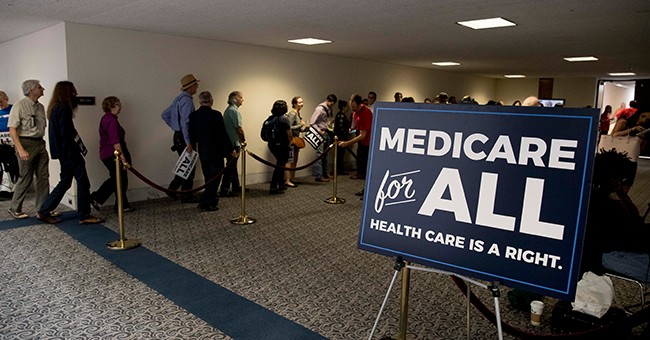
Article by Laura Hollis in "Townhall":
Twenty-three years ago, I was asked to give a talk to the New York City Bar Association as part of a symposium titled "Executioners, Jailers, Slave Trappers and the Law: What Role Should Morality Play in Judging?" I was charged with addressing what judges should do when faced with moral quandaries over issues like partial-birth abortion (also called "dilation and evacuation abortions," or "D&E abortions") and physician-assisted suicide. While I was discussing the present, the other panelists -- most of whom were judges -- were discussing the past (as in, "What should judges have done about slavery?" or "Should judges have taken stronger stances against fascism in Germany?").
Observations I made back in 1997 strike me as even more significant now. I said: "How does an unjust law come into existence? How does an evil law come into existence? ... (These laws) do not come sweeping into our lives like a blizzard. They come in like cold air through cracks in a window. ... I must confess, I am particularly concerned by the modern advocacy for physician-assisted suicide at a time when we are also arguing for more government intervention, if not control, over the health care system. ... I am very concerned about the prospect of a faceless bureaucracy making decisions about the adequacy, the appropriateness and the finality of care. We all should be."
One thing that did not occur to me in 1997 was the prospect of withholding health care based upon one's political views. In the current climate, with Democratic presidential candidates advocating for "Medicare for All," it should.
That is concerning enough. But this week, Sky News reported that new rules that will take effect in April permit NHS staff to refuse to treat patients who are homophobic, sexist or racist.
To be clear, this rule applies only to nonemergency care. And it is intended to shield NHS workers from barrages of verbal abuse. (There are similar rules in place now that apply only to aggressive or physically violent behavior.)
Medical caregivers should not be subjected to vicious and insulting tirades by people they are trying to help. But I cannot help but wonder what would happen if the United States were to implement single-payer health care and such a rule were put into place here.
A few years ago, the idea that someone could be refused health care because of his or her politics would have seemed hysterical and absurd. But perhaps not anymore.
Similarly, Americans wonder why some people who are accused of lying to Congress or law enforcement -- like Roger Stone, George Papadopoulos and former national security advisor Michael Flynn -- receive convictions and/or face long prison sentences while others -- like Hillary Clinton and Andrew McCabe -- get a pass.
As noted above, the new NHS rule is intended to protect health care workers from insults and slurs. But it is easy to see how something similar in the United States could be twisted for political advantage, particularly given the widespread tendency in some quarters to treat every political, policy or cultural disagreement as an expression of hate: racism, sexism, homophobia or other bigotry.
Left-wing organizations like the Southern Poverty Law Center smear Christian activists as homophobic and post them on their map of "hate groups." Social media giants pull down posts and videos from conservatives and pro-life activist groups such as Prager U and Live Action. College campuses are notoriously intolerant of conservative speakers, and shut down speakers and other events with threats of violence.
And then there's the antifa movement, which treats every political disagreement as incipient fascism that justifies violence.
The point is not that these groups are arms of the government. The point is how easy it has become to smear people as "racist," "sexist," "homophobic" or "haters."
Under those circumstances -- and given the discrimination we have seen our government engage in -- I am even more leery of government-run health care than I was back in 1997.
https://townhall.com/columnists/laurahollis/2020/02/20/medicare-for-some--depending-on-their-politics-n2561583
